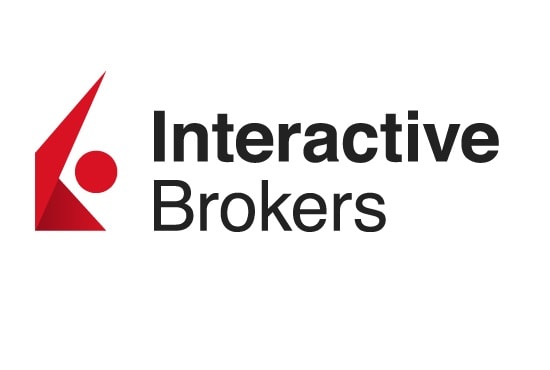Robinhood | Vanguard | |
Monthly Fee | $0 – $6.99
$0 for basic account, $6.99 for Robinhood Gold | Up to 0.30%
$0 online commission on U.S. listed stocks, mutual funds and ETFs, options: $0.65 per-contract, Vanguard Digital Advisor – 0.015%, Vanguard Personal Advisor: 0.03%, Vanguard Personal Advisor Select: up to 0.03%, Vanguard Wealth Management: up to 0.03% |
Account Types | Brokerage, Retirement, Crypto | Brokerage, Retirement, Wealth Management |
Savings APY | 1.00% – 4.50%
You’ll earn 0.01% Annual Percentage Yield (APY) as a Robinhood Gold member on your uninvested brokerage cash that is swept to the banks in our program. | 3.65% |
Minimum Deposit | $0 | $0 – $5M
Vanguard Brokerage: $0,
Vanguard Digital Advisor: $100,
Vanguard Personal Advisor: $50,000,
Vanguard Personal Advisor Select: $500,000,
Vanguard Wealth Management: $5M |
Best For | Active Traders, Tech Savvy Investors | Long Term Investors, Retirement, Robo Advisor, Wealth Management |
Read Review | Read Review |
Robinhood vs. Vanguard: Compare Features
Vanguard is best suited for long-term investors seeking a broad range assets and in-depth portfolio analysis tools, robo-advisor services, and structured cash management options.
Vanguard | Robinhood | |
|---|---|---|
Investing Options | Full Access To Almost Any Asset | Over 5,000 securities, most U.S. stocks and ETFs listed on U.S. exchanges |
Investing Types | Stocks, Options, ETFs, Bonds & CDs, Mutual Funds, Money Market Funds | Stocks, Options, Futures, ETFs, Crypto, Margin, Fractional Shares |
Automated Investing | Yes | No |
Paper Trading | No | No |
IPO Access | No | Yes |
Dedicated Advisor | Yes | No |
Tax Loss Harvesting | Yes | No |
Robinhood, meanwhile, is ideal for active, hands-on investors and beginners. It offers commission-free trading, fractional shares, cryptocurrency access, and a cash management account.
It also offers a premium service called Robinhood Gold.
-
Self Investing And Fundamental Analysis Options
Vanguard is our winner in self-investing, mainly due to its broader options for long-term investors.
Vanguard is great for long-term investors, offering low-cost funds and a wide range of ETFs, mutual funds, and retirement products.
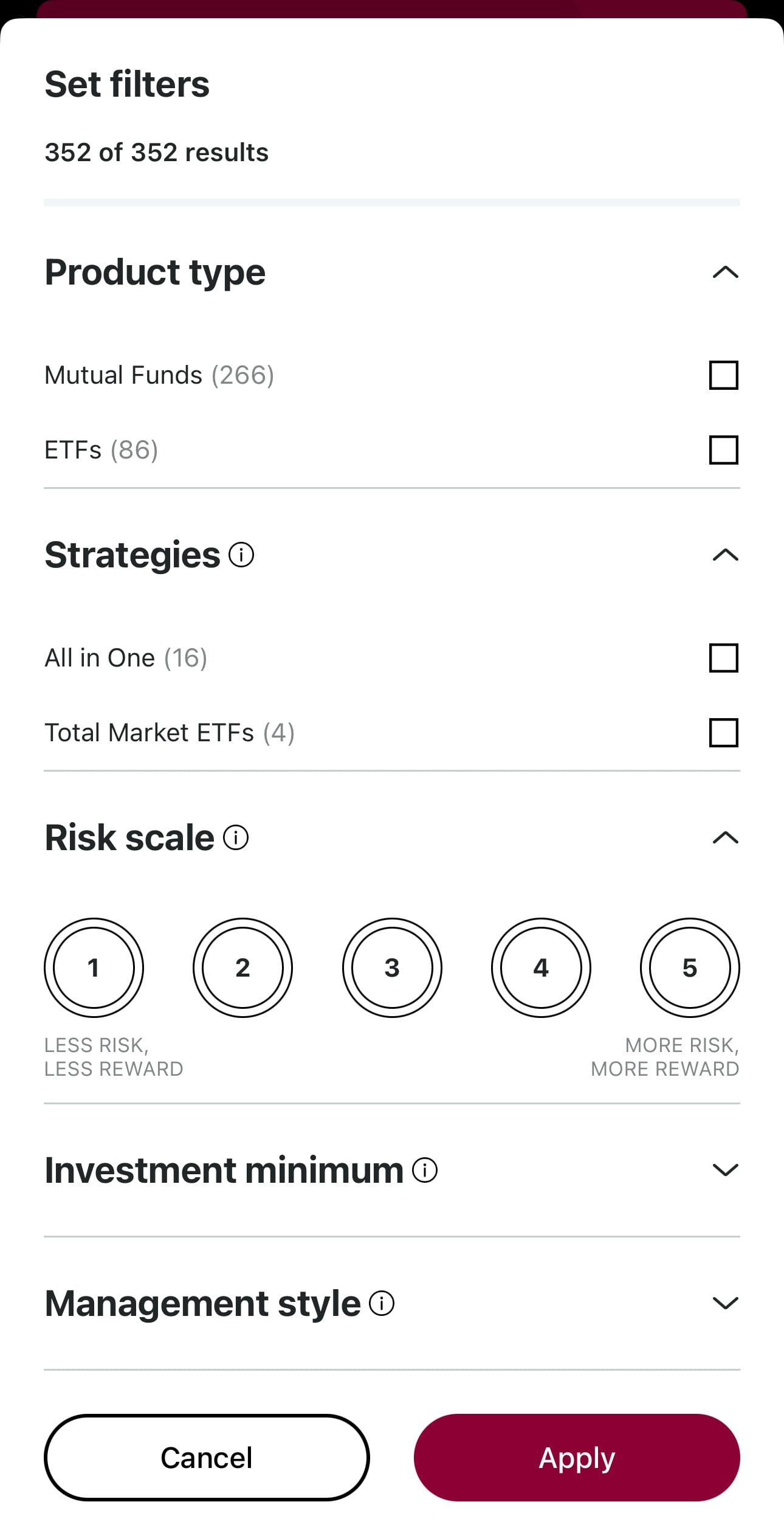
They have useful tools like Portfolio Watch and Portfolio Tester that let investors keep track of their investments, test out changes, and make sure their portfolio is diversified.
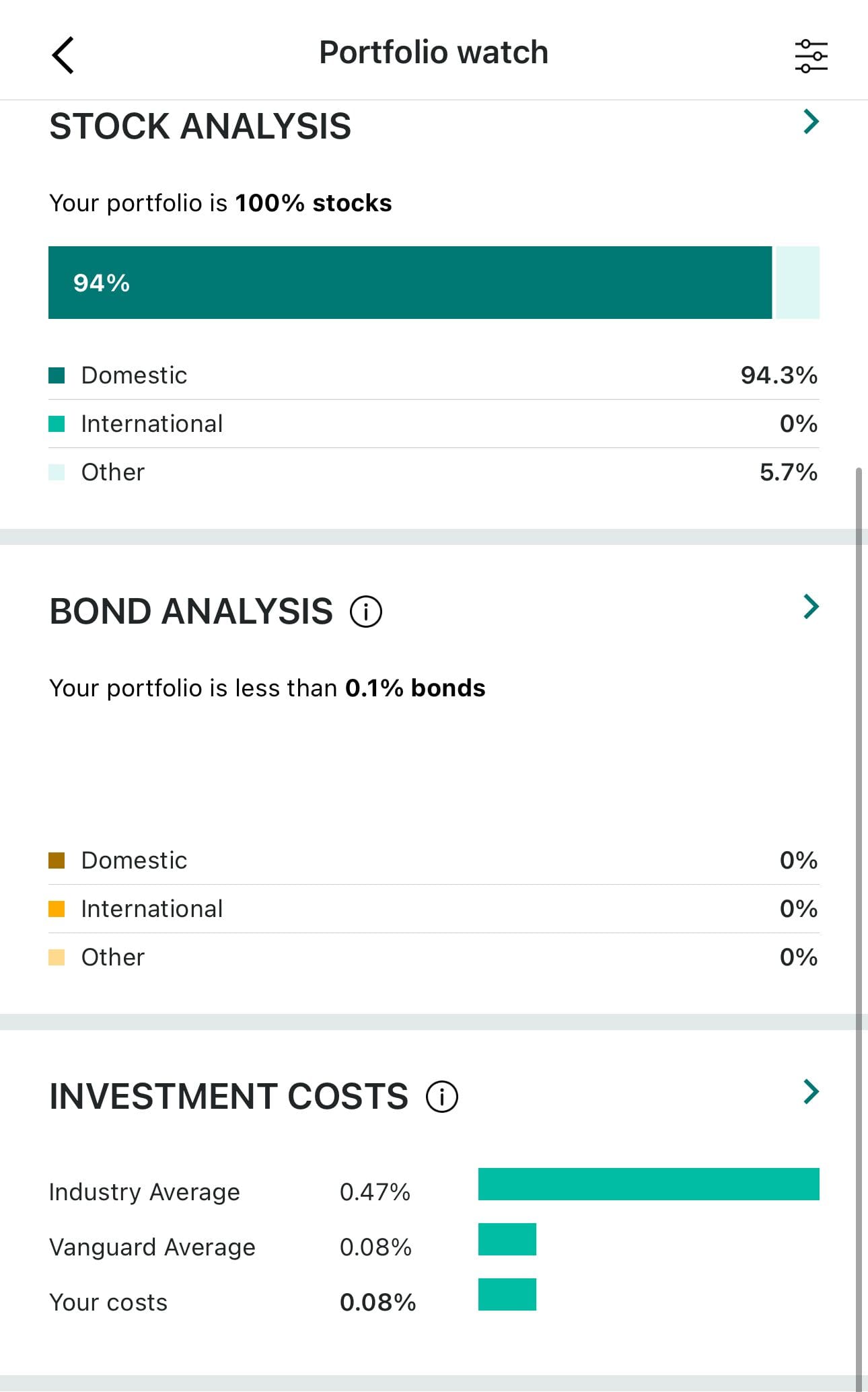
The main advantage of Robinhood compared to Vanguard lies in its ability to trade futures, crypto, and fractional shares. Robinhood has good access to different assets, including more than 5,000 securities with a great variety of U.S. stocks and ETFs, but not less than Vanguard.
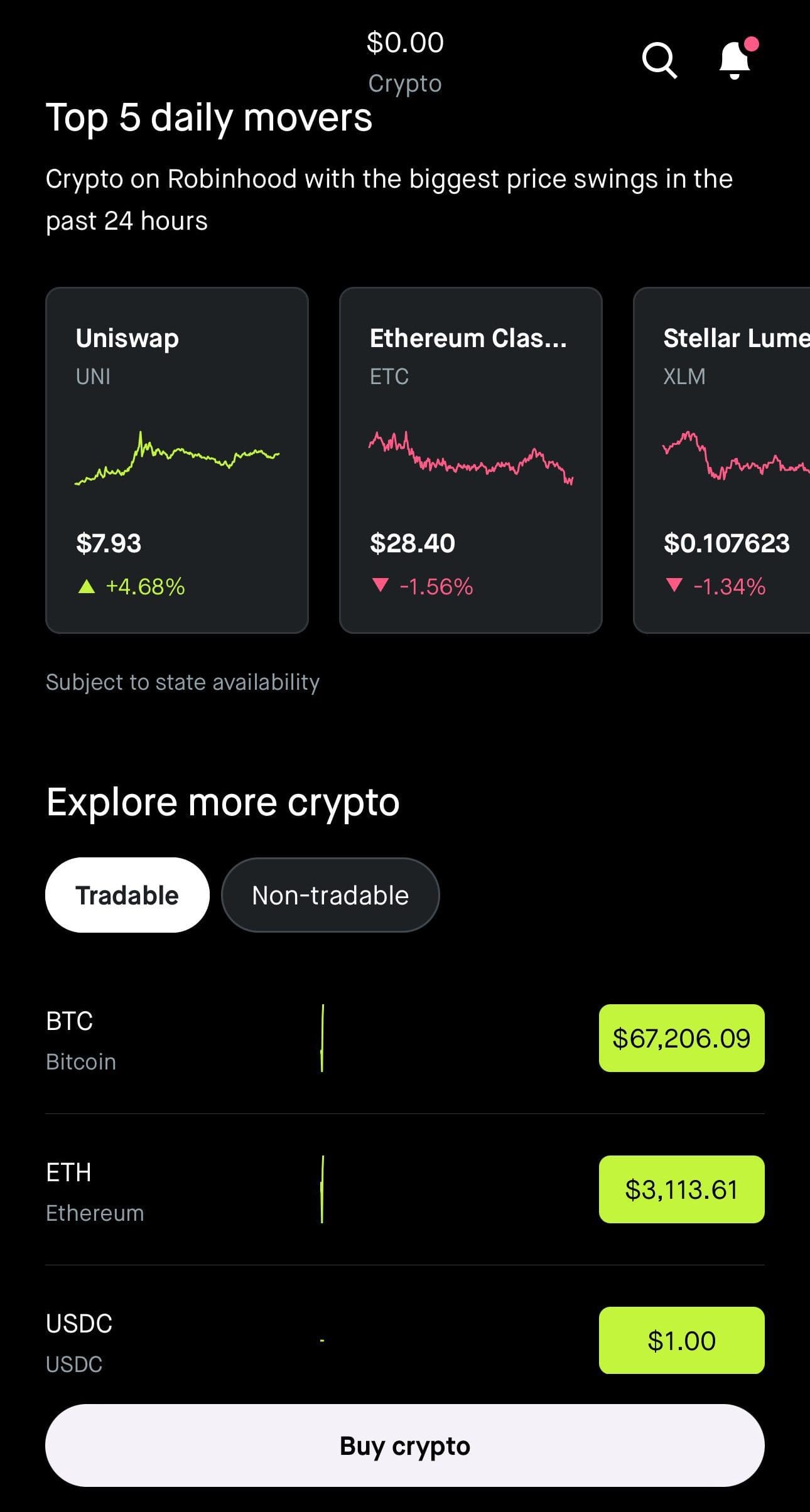
However, Robinhood lacks the comprehensive mutual fund offerings and deeper portfolio analysis tools found in Vanguard.
-
Trading Options And Technical Analysis Tools
Robinhood is much better for traders than Vanguard. Robinhood is geared toward active traders and those who want more control over their trades.
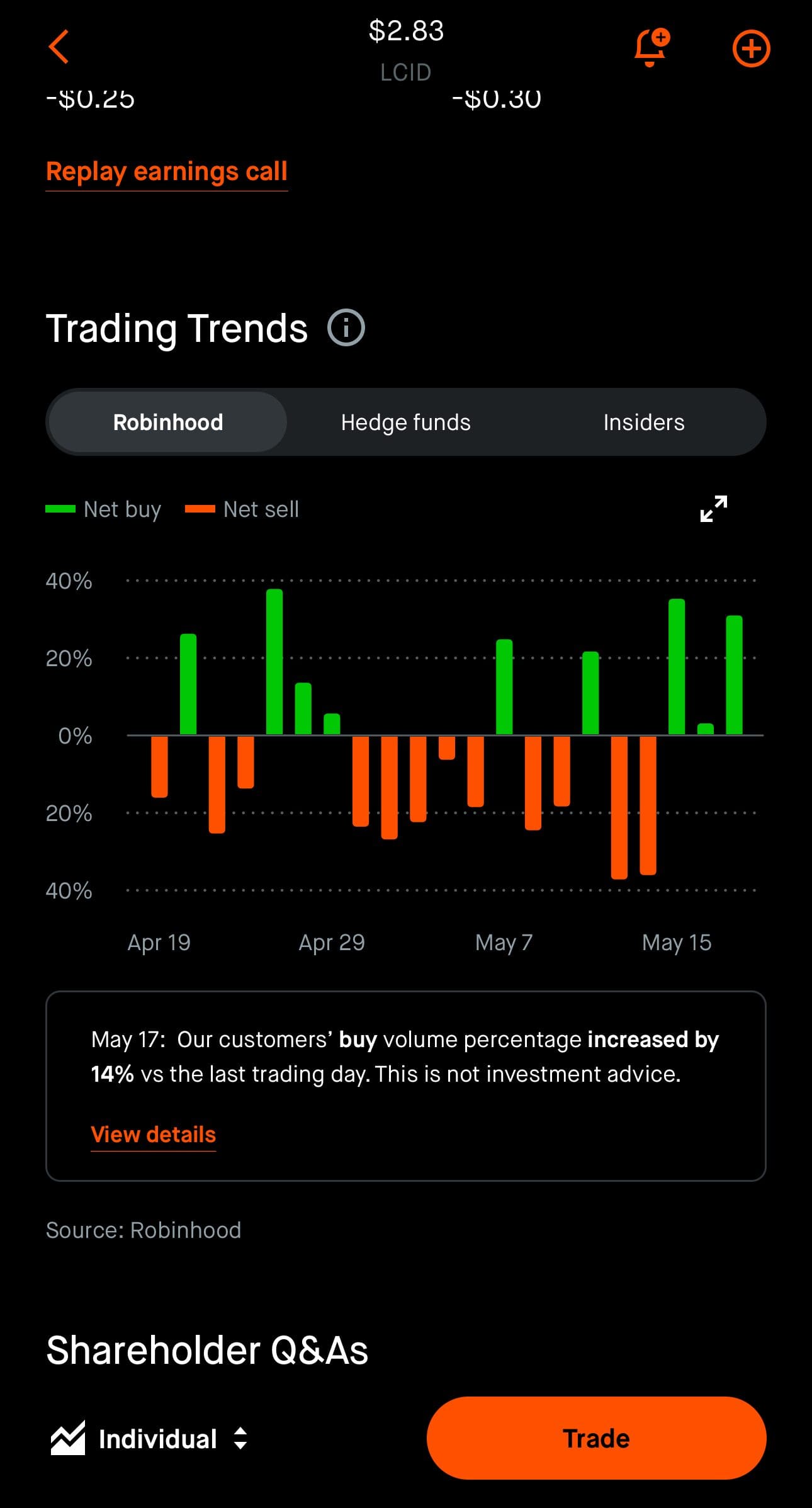
It stands out with its advanced charting features, offering real-time data, technical indicators, and customizable charts, making it a better choice for users need to analyze market trends and make quick decisions.
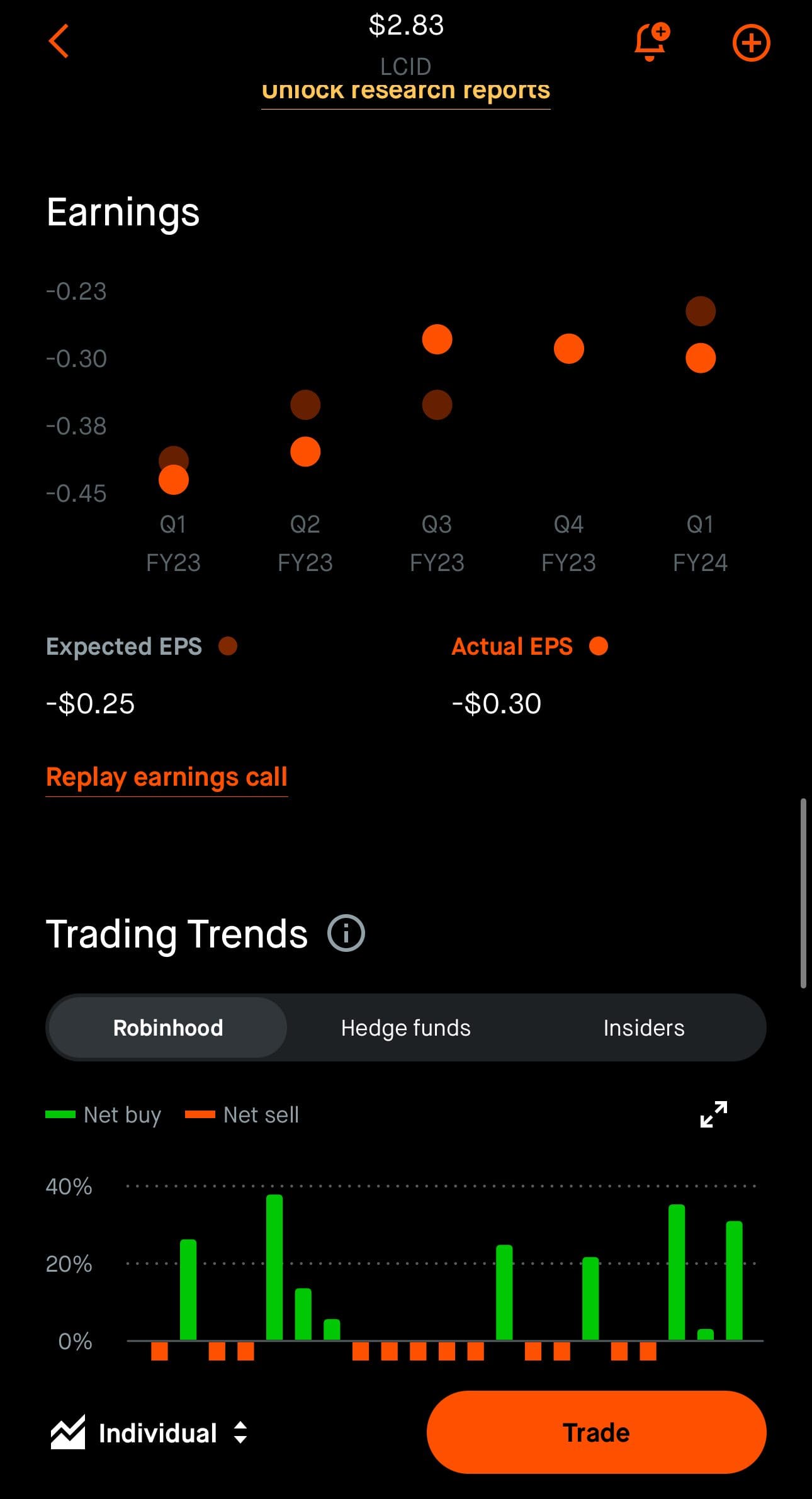
On the other hand, Vanguard trading platform is pretty basic. It doesn’t have advanced charting or market indicators, which could be a downside for traders looking for deeper analysis.
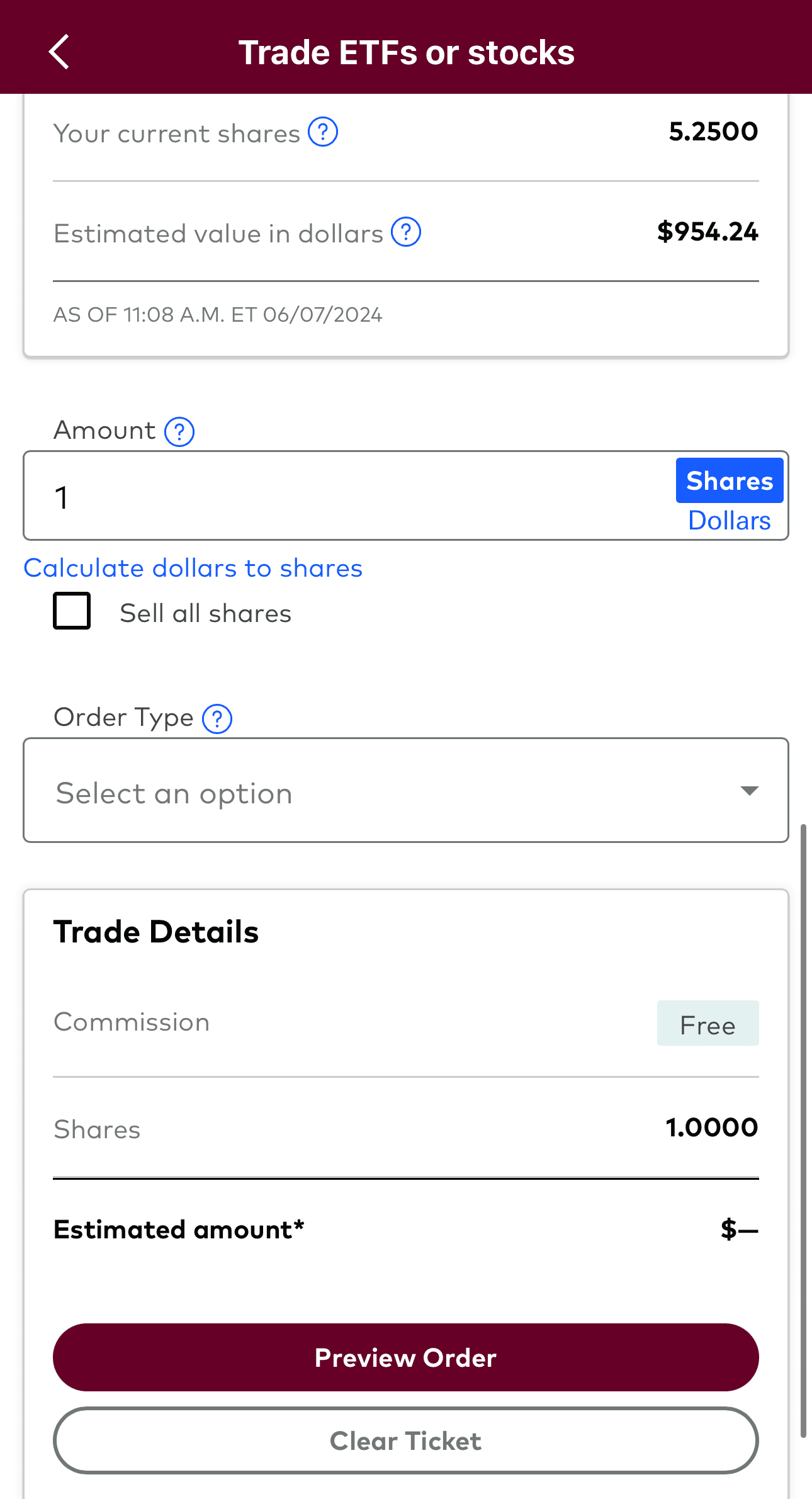
-
Robo Advisor And Automated Investing
Vanguard is a clear winner here, as Robinhood doesn't offer a dedicated robo-advisor or automated investing option.
Vanguard’s robo-advisor, Vanguard Digital Advisor, is designed for long-term, hands-off investors. It starts with a personalized assessment to determine the user’s risk profile and financial goals.
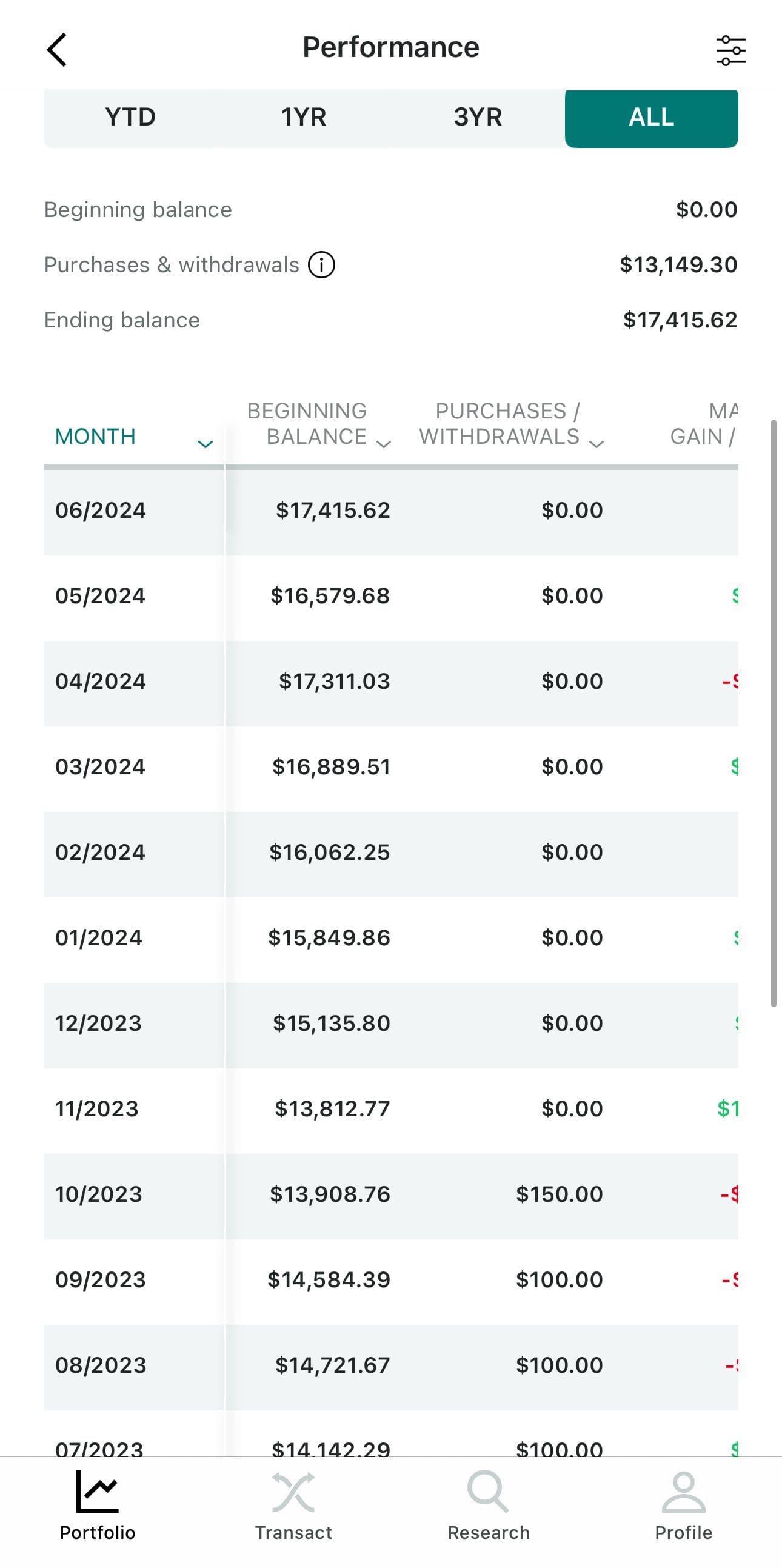
Based on this, it creates an investment strategy that automatically adjusts over time, known as a “glide path,” which gradually shifts from higher-risk assets to more conservative investments as the target date approaches.
For those wanting a mix of tech and human support, Vanguard’s Personal Advisor combines robo-advising with professional financial advice.
-
Retirement Accounts
Vanguard offers a more sophisticated array of investment options within its retirement accounts.
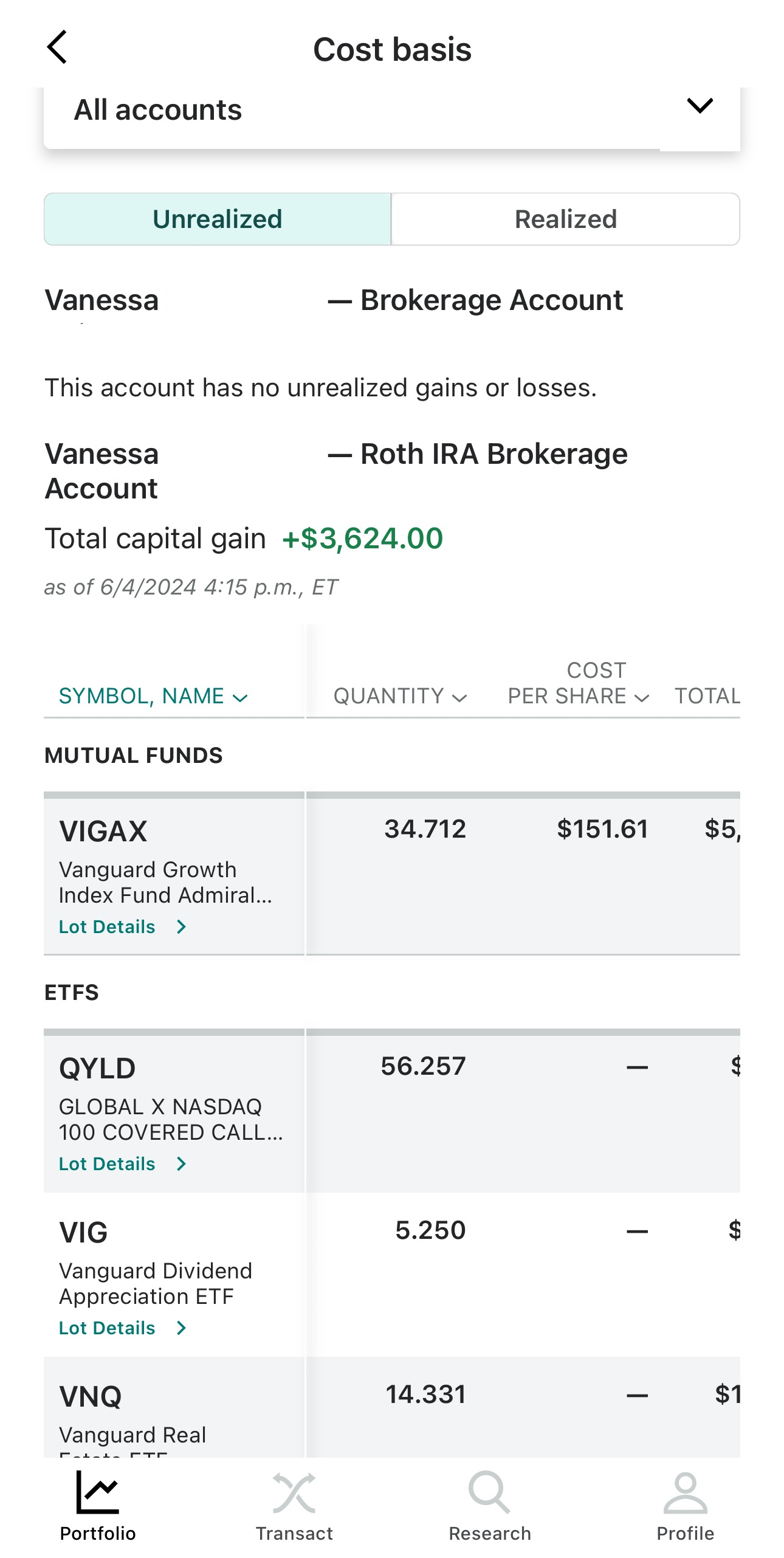
Vanguard is also well-known for its retirement products like traditional and Roth IRAs, SEP IRAs, and SIMPLE IRAs.
Their focus on low-cost index funds and target-date funds makes them ideal for long-term retirement planning, plus they offer tools to help investors set goals, estimate expenses, and track IRA contributions.
Robinhood, in contrast, has a more streamlined offering with traditional and Roth IRAs but doesn’t support the broader range of retirement accounts that Vanguard does, such as SEP IRAs or 401(k) rollovers.

However, Robinhood stands out by offering IRA contribution matching, even for non-employer plans, which can give investors an extra boost in their retirement savings.
-
Fees
When it comes to fees, Robinhood is our winner.
Robinhood is known for its commission-free trading on stocks, ETFs, options, and cryptocurrencies, as well as no account maintenance fee
Vanguard | Robinhood | |
|---|---|---|
Fees | Up to 0.30%
$0 online commission on U.S. listed stocks, mutual funds and ETFs, options: $0.65 per-contract, Vanguard Digital Advisor – 0.015%, Vanguard Personal Advisor: 0.03%, Vanguard Personal Advisor Select: up to 0.03%, Vanguard Wealth Management: up to 0.03% | $0 – $6.99
$0 for basic account, $6.99 for Robinhood Gold |
Vanguard fees are up to 0.30% for account management, with $0 commissions on U.S. stocks, mutual funds, and ETFs. Options trading costs $0.65 per contract, and their advisory services range from 0.015% to 0.03%, depending on the level of service.
-
Cash Management And Savings Rates
Robinhood is a bit more attractive when it comes to cash management due to its variety of banking features, and both offer great rates on uninvested cash.
Vanguard | Robinhood | |
|---|---|---|
Savings APY | 3.65% | 1.00% – 4.50%
You’ll earn 0.01% Annual Percentage Yield (APY) as a Robinhood Gold member on your uninvested brokerage cash that is swept to the banks in our program. |
Robinhood cash management account is better than Vanguard and offers more banking options such as a debit card, free ATM access, and instant deposits. It provides a competitive interest rate of 4.00% on uninvested cash for Gold memebrs.

For cash management, Vanguard provides the Cash Plus Account, which earns interest on balances. They also offer money market funds that might offer better returns, though these require a $3,000 minimum.
-
Wealth Management Options
Only Vanguard offers wealth management options.
Vanguard’s Wealth Management services are aimed at investors with at least $5 million in assets. They focus on helping clients with long-term financial planning, managing investments, and estate planning.
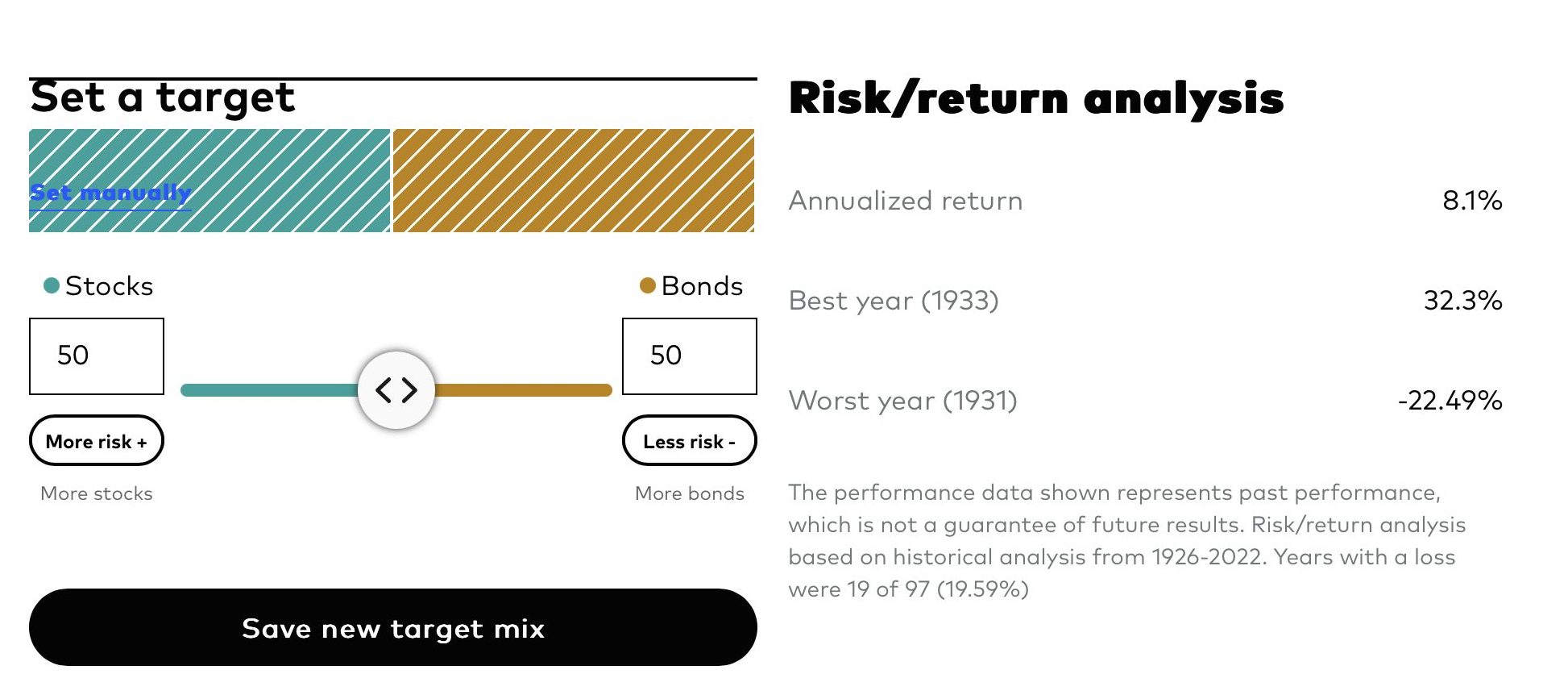
Vanguard wealth management combines automated tools (robo-advisors) with advice from certified financial planners to create personalized strategies, like minimizing taxes and planning for the future of your estate.
Bottom Line
The differences between these brokerages are pretty clear— Vanguard offers many more options for investors, including various asset retirement plans, robo advisors, and wealth management.
On the other hand, Robinhood is best for traders – its technical tools are better, and there are assets, such as crypto, that are not available with Vanguard.
Compare Robinhood Side By Side
Schwab offers more options for investors, including robo advisors and wealth management, while Robinhood is best for beginners and traders.
Schwab vs. Robinhood: Which Brokerage is Right for You?
Merrill Edge is best for long-term investments, including retirement, while Robinhood is perfect for active traders who value simplicity.
Merrill Edge vs. Robinhood: Compare Brokerage Account Options
JP Morgan wins when it comes to fundamental investing tools, but Robinhood is better for technical analysis and trading. Here's why:
J.P. Morgan Self-Directed Investing vs. Robinhood : Compare Brokerage Accounts
Fidelity is our winner for diversified long-term investing, while Robinhood shines in cost-effective options for active traders and beginners.
Robinhood is an excellent choice for beginner and casual investors, but IBKR is better suited for experienced investors and advanced traders.
Interactive Brokers vs. Robinhood: Compare Brokerage Account Options
Robinhood is best for low-cost platform for various trading needs, including Crypto. Etrade is better for one stop shop, including banking.
Robinhood is best for traders looking for easy, cost-free trading, while Stash is great for beginner investors who need a financial management tool
While Robinhood caters to traders and advanced investors, Acorns focuses on automated investing and banking. Here's our full comparison.
Webull is better suited for experienced traders needing advanced tools, whereas Robinhood caters to beginners and those who prefer simplicity.
Vanguard vs. Competitors: How Does It Stack Up?
While Vanguard appeals to buy-and-hold investors, Schwab’s platform is designed for those who want to engage actively with the market
Vanguard is our pick for long-term investors, wealth management, or retirement, while E-Trade may be better for traders active investors
Vanguard may be a better option for value, long-term investors, while Merrill offers better trading options. Here's a side-by-side comparison
Vanguard vs. Merrill Edge: Which Brokerage is Right for You?
Vanguard provides more options for investors, while Interactive Brokers offers superior technical tools for active traders
Vanguard vs. Interactive Brokers: Which Brokerage is Right for You?
Vanguard offers a better approach for serious investors, while JP Morgan's self-directed is better for beginners and advanced traders
Vanguard vs. J.P. Morgan Self-Directed: Which Broker is Best For You?
Fidelity is our choice due to its better retirement options and more extensive trading app. But, the differences are insignificant.


